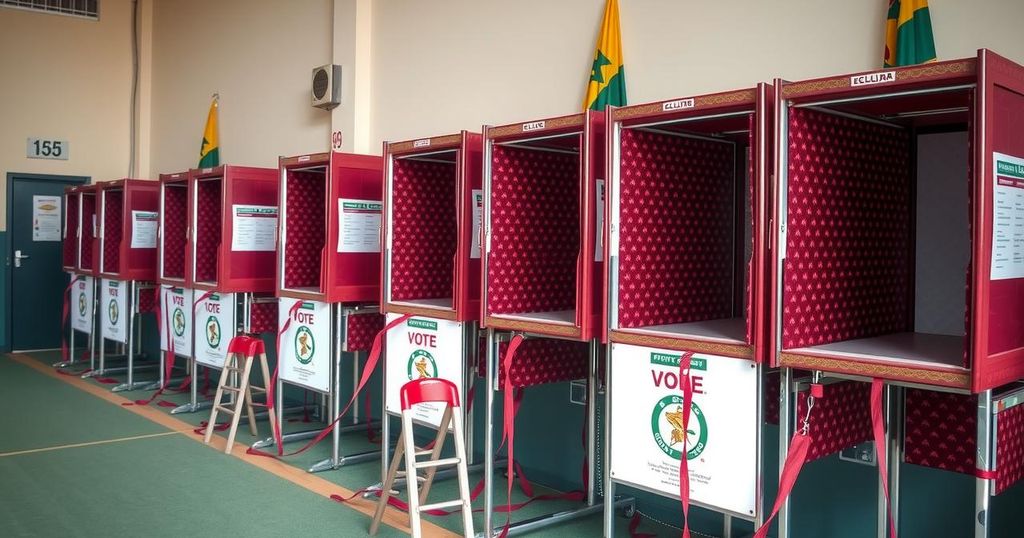Ghana’s General Election: A Critical Test for Democracy Amid Economic Hardship
Ghana opened polls for a general election amid economic crisis, with 18.7 million voters registered. The election is seen as a critical test for democracy, but candidates offer little hope for change. Ghana struggles with inflation and job scarcity, weakening its status as a democratic leader in West Africa.
On Saturday, Ghana commenced its general election, a crucial opportunity to evaluate its democratic processes amid regional challenges of extremist violence and political instability. With approximately 18.7 million registered voters participating in the presidential and legislative elections, the electorate faces candidates who seemingly offer minimal prospects for transformative change. Once heralded as a beacon of democracy in West Africa, Ghana now grapples with a severe economic downturn characterized by soaring inflation and a significant scarcity of employment opportunities.
The general election in Ghana is set against a backdrop of economic turmoil and political discontent. Historically regarded as a model of democratic governance within West Africa, Ghana’s recent struggles with economic challenges serve to undermine its democratic institutions. Instances of unrest, exacerbated by a declining economy, have drawn attention to the importance of this election as a measure of the nation’s commitment to democratic values in a region facing increasing instability marked by coups and violence.
In conclusion, the general election in Ghana represents a critical juncture for the nation, offering an opportunity to reaffirm democratic ideals in the face of significant economic and political hurdles. With a voter base eager for change yet presented with limited options, the elections will not only reflect the citizens’ sentiments but also indicate the potential trajectory of Ghanaian democracy amidst ongoing crises in the region.
Original Source: abcnews.go.com




Post Comment